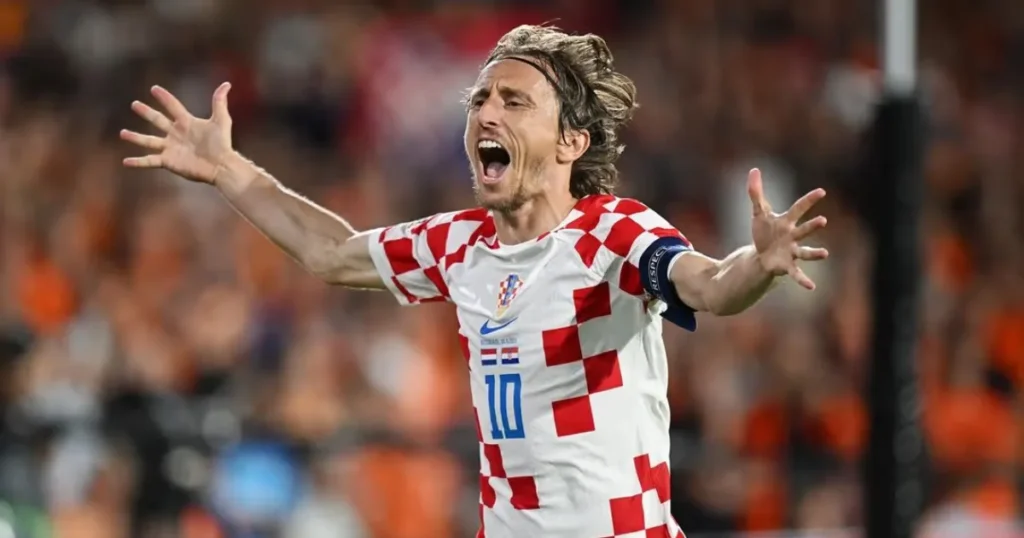The Croatia national football team, often hailed as the “Fiery Ones” or Vatreni, has etched its name into the annals of international soccer with a blend of technical brilliance, unyielding spirit, and that signature Balkan flair. For a nation of just over four million people, Croatia’s football journey is nothing short of miraculous—a testament to how passion, talent, and tactical nous can punch way above their weight. Whether you’re a die-hard supporter or a curious newcomer, diving into the world of the Croatia football team reveals stories of triumph over adversity, iconic heroes, and a fanbase that lives and breathes the beautiful game. In this comprehensive guide, we’ll explore everything from their storied history to their Croatia next match, all while keeping an eye on what makes this squad so captivating.
A Storied History: From Independence to International Stardom
The roots of the Croatia football team trace back further than you might think, but their modern chapter truly began amid the turmoil of the early 1990s. Football arrived in Croatia in 1873, introduced by British expatriates working on industrial projects. By 1907, local clubs were forming, and informal national sides were playing friendlies against teams like Slavia Prague. However, it wasn’t until Croatia’s independence from Yugoslavia in 1991 that the Croatian Football Federation (HNS) gained full autonomy, joining FIFA in 1992 and UEFA shortly after.
Their debut competitive era under coach Miroslav “Ćiro” Blažević was electric. Qualifying for UEFA Euro 1996, Croatia stunned with a quarter-final run, falling 1-2 to eventual champions Germany. But it was the 1998 FIFA World Cup in France that catapulted them to global fame. Drawn in a tough group, they topped it undefeated—beating Austria 1-0, Germany 2-1, and Poland 1-0—before dismantling Romania and Denmark in knockouts. Their semi-final loss to hosts France (1-2) stung, but a 2-1 third-place win over the Netherlands secured bronze, the nation’s first-ever major tournament medal. Davor Šuker’s Golden Boot (six goals) and Robert Prosinečki’s magic made headlines worldwide.
The early 2000s brought inconsistencies: group-stage exits at Euro 2004 and World Cup 2006, missing Euro 2000 and 2012. Yet, under Slaven Bilić, they qualified for Euro 2008 quarters (losing to Turkey on penalties) and reached South Africa 2010. A dip followed, but Zlatko Dalić’s appointment in 2017 sparked a renaissance. His Croatia stormed to the 2018 World Cup final, beating Argentina, Nigeria, Denmark (penalties), Russia, and England (2-1 extra time) before a 4-2 defeat to France. Silver was theirs—the smallest nation to reach a final since 1950.
The magic continued at Qatar 2022: group wins over Argentina and Japan, a Morocco draw, then penalty heroics against Japan and Brazil, a semi-final loss to Argentina, and bronze over Portugal (3-1). In the 2024 Euros, they navigated a “group of death” with Spain and Italy, advancing via Albania’s last-gasp loss but bowing out in round-of-16 to Spain on penalties. The 2023 UEFA Nations League final (runners-up to Spain) added another silver. From 125th in FIFA rankings upon entry to consistent top-15 status, Croatia’s ascent is the stuff of underdog legends.
Major Achievements: Medals, Records, and Unbreakable Spirit
What sets the Croatia football team apart? It’s their uncanny ability to thrive in high-stakes moments, especially penalties—holding the World Cup record with five shootout wins (Denmark 1996, Norway 2006, Turkey 2008, Japan 2022, Brazil 2022). They’ve qualified for 12 of 14 major tournaments since 1994, missing only Euro 2000 and World Cup 2010.
Key milestones include:
- 1998 World Cup: Bronze medal, fastest rise to FIFA top-3 ever.
- 2018 World Cup: Runners-up, Luka Modrić’s Golden Ball.
- 2022 World Cup: Bronze, third podium in five appearances.
- Euro 1996 & 2008: Quarter-finals.
- UEFA Nations League 2023: Runners-up.
- FIFA Best Mover Awards: 1994 and 1998—the only team to win twice.
Individual honors abound: Šuker’s 1998 Golden Shoe and Silver Ball, Modrić’s 2018 Ballon d’Or runner-up. With three World Cup medals, Croatia joins elite company like Germany and Brazil. Their Elo rating peaked at 2,012 in 2023, underscoring a golden era.
To better understand their tournament prowess, here’s a handy table summarizing Croatia’s major tournament performances:
| Tournament | Year(s) Qualified | Best Finish | Key Highlight | Goals Scored / Conceded |
|---|---|---|---|---|
| FIFA World Cup | 1998, 2002, 2006, 2014, 2018, 2022 | Runners-up (2018) | Bronze (1998, 2022); Final vs. France | 1998: 11/5; 2018: 12/10; 2022: 8/7 |
| UEFA Euro | 1996, 2004, 2008, 2012, 2016, 2020, 2024 | Quarter-finals (1996, 2008) | 2024 Group of Death survival | 1996: 5/3; 2008: 4/4; 2024: 3/5 |
| UEFA Nations League | 2018-19, 2020-21, 2022-23, 2024-25 | Runners-up (2023) | Semi-final win over Netherlands (4-2) | 2023: 7/3 |
| FIFA Confederations Cup | 2006 | Group Stage | Loss to Brazil in final group match | 2/9 |
This table highlights not just results but the grit—minimal concessions in big games, proving their defensive steel.
Key Players: Icons Past and Present Who Define the Shirt
The Croatia football team has been blessed with talents who transcend borders, many plying trades at Real Madrid, Manchester City, and beyond. Luka Modrić, the eternal maestro, holds records with 188 caps and a Ballon d’Or nod. At 40 in 2025, his vision and passing remain elite, captaining with poise.
Veterans like Ivan Perišić (130+ caps, versatile wing-back) and Mateo Kovačić (midfield dynamo) anchor the core. Up front, Andrej Kramarić’s clinical finishing (30+ goals) adds bite. The defense is a fortress: Joško Gvardiol (Manchester City starlet, rock-solid CB), Josip Stanišić (Bayern’s rising full-back), and Dominik Livaković (Fenerbahçe GK, penalty-saving legend).
Youth injects fire: Luka Ivanušec (18-year-old goal record holder), Martin Baturina (creative spark), and Gvardiol’s partner-in-crime, Igor Šuto. Davor Šuker (45 goals, all-time top scorer) and Mario Mandžukić (33 goals) are retired legends whose headers and hustle inspired generations. Current squad depth—averaging 27 years old—blends experience with vitality, making them perennial contenders.
Tactics Under Zlatko Dalić: Pragmatism Meets Panache
Since taking over in 2017, Zlatko Dalić has masterminded Croatia’s success with a 4-3-3 that morphs fluidly. Modrić often drops deeper as a No. 10, orchestrating with Kovačić and Marcelo Brozović (now at Al-Nassr) in a midfield triangle that’s arguably Europe’s best—controlling tempo, pressing high, and transitioning ruthlessly.
Defensively, it’s “safety first”: compact lines, Gvardiol sweeping, and full-backs like Perišić overlapping for width. Attacks build patiently, exploiting spaces with Kramarić’s runs or Ivan Perišić’s crosses. Set-pieces are lethal—Bruno Petković’s headers from corners. At Euro 2024, Dalić adapted by shifting Gvardiol centrally against Spain, showcasing tactical flexibility. Critics note a conservative bent (few open-play wins in Qatar), but results—three medals in six years—silence doubters. Dalić’s man-management, blending psychology and strategy, fosters that never-say-die ethos.
Recent Results: Building Momentum in 2024-2025
The Croatia football team entered 2024-2025 with Euro 2024 heartbreak but Nations League resolve. At the Euros, a 3-0 loss to Spain exposed frailties, but a 1-1 Albania draw and 1-1 Italy stalemate (Moro’s 90+5′ equalizer) secured third. Round-of-16 penalties to Spain (5-3) ended dreams, yet their group max points (undefeated bar Spain) echoed 1998 grit.
Nations League 2024/25: A 1-0 Scotland loss stung, but a 1-1 Portugal draw showed fight. By October 2025, World Cup qualifiers ignited: 7-0 Gibraltar thrashing, 3-0 Czech win. September’s 1-1 Poland draw and 2-1 France victory (Perišić magic) propelled them. As of November 2025, they’re unbeaten in qualifiers (three wins, one draw), topping Group L with 10 points. Croatia FIFA ranking? A climb to 11th post-March 2025 wins, reflecting resurgence.
These results underscore resilience: from Euro pain to qualifier dominance, setting sights on 2026.
Upcoming Fixtures: Eyes on the Croatia Next Match
Excitement builds for the Croatia next match on November 14, 2025— a World Cup qualifier vs. Faroe Islands at Maksimir Stadium (7:45 PM UTC). Expect a routine win; Croatia’s home form is formidable. Three days later, November 17, they host Montenegro, another winnable clash to cement group lead.
Beyond: Friendlies in March 2026 prep for World Cup draw (December 2025, Pot 1 seeds). Nations League quarters vs. France (March 2026) loom large. With qualifiers running to November 2025, every game hones that medal hunt. Fans, mark calendars—these are stepping stones to North American glory.
Fan Culture: Passion, Pride, and the Red-White Roar
Croatian football fandom is visceral, a tapestry of unity and occasional controversy. The official club, Uvijek Vjerni (“Always Faithful”), unites supporters nationwide, but roots lie in club ultras: Bad Blue Boys (Dinamo Zagreb) and Torcida (Hajduk Split). These groups fuel atmospheres at Maksimir or Poljud, with flares, chants like “Oj, Hrvatska, domovino!” (Oh Croatia, homeland!), and checkered flags waving like a sea of red-white.
Post-1998 bronze, Zagreb’s streets erupted—half a million celebrated. World Cup runs draw governmental nods: schools close for matches, PMs don jerseys. Yet, shadows linger: hooliganism, pyrotechnics, and rare discriminatory chants (e.g., 2015 Italy racism fine) have drawn UEFA/FIFA penalties, including partial stadium closures. The HNS combats this, promoting inclusivity via player-led initiatives for disabled kids.
Still, it’s mostly joyous—coastal Dalmatians vs. Zagreb continentalists banter regionally, but national games transcend divides. Football here is identity: a post-war balm, a global ambassador. As one fan quipped, “We don’t just support; we embody Croatia.”
Future Outlook: Transition, Talent, and 2026 Dreams
As 2025 unfolds, the Croatia football team stands at a crossroads—poised for more, yet eyeing renewal. At 11th in Croatia FIFA ranking, they’re Pot 1 for 2026 World Cup draw, favorites for qualification (Czechia, Montenegro, Faroe Islands, Gibraltar). Dalić, hitting 100 games, eyes extension beyond 2026, blending vets like Modrić (potential swan song) with prodigies: Gvardiol (28 by WC), Baturina (22), and emerging attackers like Roko Šimić.
Challenges? Aging core—Perišić (36), Kovačić (31)—demands seamless integration. Youth pipeline shines: U-21 stars transitioning smoothly. Post-2026 Euros (2028) could herald a new era, but expect semis contention in USA/Canada/Mexico. With Dalić’s pragmatism and raw talent, another medal isn’t fantasy—it’s expectation. Croatia’s story? Underdogs who roar loudest.






